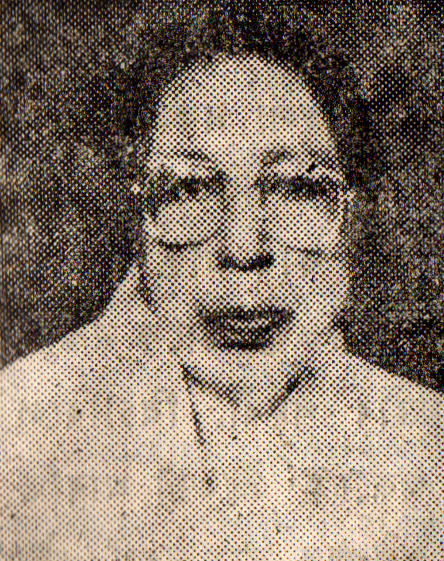 Aroti
Saikia
Aroti
Saikia
Usually women of our society think that giving birth to
a child, raising him/ her together with being busy with the household
works are meant to be the only reason of being a women. And this mentality
of the majority of women in India has led them stay indoors within a
certain boundary of oblivion. But still, keeping in view of these duties
many women with the anxiety to cope up with the raising society and the
rest of world�s women, urges to break away from this darkness to the
bright and beautiful limelight of the developing world. Like the rays of
the sun penetrated thought the dark, these women have penetrated through
the loop holes of their surrounding walls of heavy duties towards family
and have found enough courage to pick up the pen to their power. Today
women have encouraged themselves to be able to do anything that any men
could. Sometimes moving on with the passion of politics and work, women
have empowered themselves to a certain level of equality.
Talking of such extraordinary women we must not forget
to mention one name that is well known for her perpetual works and
devotion to the field of literacy and service to the society. Born with a
golden spoon, Aroti Saikia of Golaghat, daughter of renowned
freedom fighter Sri Kulodhor Saliha and Srimati
Sashi Prabha Saliha has been an ideal for many women
of her time and many times to come. Being the only child she could have
had all the freedom of doing anything she liked but instead she decided to
do something for the general people and serve the society. She searched
something new to add to her life- she was a mother, a teacher, a writer, a
poet as well as a politician. Married to a well- established business
tycoon of Golaghat, Sri Gargaram Saikia, she could have led a king-size
life or we can rather say a very luxurious life but she devoted herself to
work for the under developed and be someone that many could follow her
path as an icon.
Srimati Aroti Saikia was born 1925 in the month of
August in a very rich and honorable family of Jorhat and it was from her
father Sri Kulodhar Saikia that she gained her interest in social service
and thus worked for the betterment of the society.
It was pre-independence when she started her journey of
life her schooling in Jorhat itself and then moved to Kolkata for her
higher education. But she had to halt her studies after she passed her
intermediate exam- I.A. She returned home, got married but her love and
determination towards studies never faded. It must have been tough for to
leave what she wanted and to have an entirely different life that she
could ever imagine but with the strong devotion and determination she
managed her with the household duties and thus she passed her bachelor
degree (B.A) and passed her master�s degree (M.A) soon after. She then
carried on with the profession as a teacher in Deudhor Girls� high School,
Golaghat. After working and serving as a teacher for almost ten years
Srimati Aroti Saikia turned her interest towards art, culture and
literature. We believe she could have done a lot to the society if she
only focused on art and literature. But she was an open minded person, a
bird in an open space. She had moved to politics as well, although she
could help and serve the society through the parliament. But sadly, she
failed.
Srimati Aroti Saikia was a bit broken after she lost
election. But she never let herself down and like herself down and like
the English author Jane Austen; she too dedicated her life
to art and culture. Her amenity towards literature is exceptional. However
if Srimati Saikia would have won committed her work hearts and attracted
many readers of almost any age. A fountain of fascinating and exquisite
piece of writings would have out poured from her pen.
In the year 1988 she published her book of poems "Roop
and Rekha". During the years 1947-48 she published two of
her charismatic poems- "Silpir Spon" and "Deuter
aakhep" in a magazine named "Surobhi" edited by the renowed
Bihogi poet Sri Raghunath Choudhury. Before that
in 1944, an excellent piece of her work "Sri Krishna" was
published in a magazine "Bahi" edited by Sri Madhab
Bezbaruah. In the year 1961 Srimati Saikia was given the
responsibility as the chief editor for the magazine of All Assam Women�s
Festival held in Golaghat. And in that magazine too she published another
piece of her writing titled "Bharatar Keikhonmann Nagaror
Smriti". Apart from these, on 12th of October 1966 she
published another piece of her work"Jatiya Setona
Jagaranot Siksha". In 1975 she published another article titled
"International Women�s Year of Renaissance
of Indian Womanhood" in a magazine from Golaghat. In
the same year she also published a few more articles in a daily of
Golaghat named Dhansiri with titles "Pounar Ashramor
Biswamahila" and "Sishu Divas Aru Nehrur
Adarkha", "Women and Oppression" and "Gandhiji
the Saviour of Indian Women" in the
North East Times an English newspaper. In Dainik Assam she also wrote "Satitwa,
Nari- Dharsan and Nari- Dashak". In a
magazine named Sishu Kalyan she wrote another article "Idealism
Of Nehru and Children�s Day".
Influential Aroti Saikia has even published a novel
named "Sheuji Pator Rong" which was based on true
experiences of tea gardens of Assam. She also published a book of her
prose in a compilation "Dashamir Joon" in the year 1991 and
the publisher was her daughter Srimati Nabanita Hazarika. The prose essays
in the compilation were "Matir Maya, Samajdrohi, Kaminir Maya, Anami
Sainik, Sanskaror Boli, Bhinnomukhi, Shuur, Kalpana Bilakh, Hahir Madhur
Khyon, Khanikor, Gaonor Sarishrip and Pratikshya." She was a social worker
and being a member or All Assam Lekhika Samaroh Samiti, Mrs. Saikia had to
travel to a lot of places along with others and seeing those different
environments and different cultures at many different places, she wrote
down her experiences her true feelings in the form of prose and poetry.
Her abstracts on women welfares, sufferings and women�s development were
among many that touched readers widely.
In her book "Roop and Rekha" the compilation of her
poems can be categorized into three parts: 1. Nature 2. Humanity and 3.
Invocation
"Hey Kachenjunga! Mouno Kio tumi?
Jounaakoti
Hey mahadyoti! Jidoeghotilaji
Dyuloukarubhu- loukorapurbo Milan
Haidore houk jon- jibonor hote
Maha jibonor joghutro�.?
In the poem "Brikhohobha" Srimati Saikia shared
her intimate relationship with the Mother Nature. In fact the mango tree,
the banyan, the modar and nahor came up to share their intimacy with the
human in the poem. Like poet Chandrakumar Agar Walla in his poem "Manob
Bondona", Aroti Saikia in too her poem "Achyut Konya"
clearly depicted the phrase "manuhei deva manuhei hewa".
"nuhua asprisya tumi
Shrestha parichay tobo
Dhuli dhukhorito aru fool- pate hulubhit
Aei dhoronire tumi manob sanatan�
"(Achyut Konya)
"Nohoi Potita Kewe", "Bikha Konya", "Khudhita", "Pakhani"
etc were a few among the poems where she tried to depict the protest
against the atrocities on women by men-
"Homobeto Protibeto Narikontho Ninadi Uthe
Horob Protibadere
Bisar lage, Dukhir Shasi lage
Ahibo Hudim, Mohakal hobo Protikhud
Bibekor Donkhonot Umolibo Dukhi Sob Fasir Kathot�."
Women, although soft by heart like a flower can also be
stronger than a thunder storm. And this nature of women can clearly view
in her poem "Bikha Konya".
"Tai Dhali Dile Surobhi Modira
Dhuke Dhuke Pan Kori hai holahol
Hehot Dhoti Poril�"
(Bikha Konya)
"Jagriti" "Jibon Hilpi", "Podjatra", "Santijatra" etc
were few of those poems where she rendered a perfect image of her
expertise in writing poems and putting down her feelings through those.
Poet Aroti Saikia, in her book of poems, "Roop aru
Rekha", expressed her sensitivity and thought provoking emotions in a very
simple manner. In this book, few poems also relate to the social and
gregarious affairs and also some of those poems are being translated into
English and are included among the others in the second version of the
same.
Her inspiring and pleasing poems were so heart touching
that they resulted into marvelous master work of writing and was
distinguished as a prominent personality.
While she was working at Dondodhor Girls High School,
Golaghat, she translated a drama of Rabindra Nath Tagore and made the
students to act the same.
Srimati Aroti Saikia had a challenging life ahead of
her family as the self employed herself towards social service. She was
among those organizations of Assam" Sadou Asm Lekhika Samaroh Samiti"
since the initial stage. She is the president of Golaghat Jila Parishad
Lekhika Samaroh Samiti, Advisor Sadou Asom Lekhika Samaroh Samiti and
apart from that is also a very honorable member of Jila Sahitya and Sakja
Sahitya Sabha, Golaghat. She is also an active member of Assam Pradesh
Mahila Samiti and Golaghat Jila Mahila Samiti. In 1982, she presided over
the 7th conference of Sadou Asom Lekhika Samaroh Samiti held in
Lakhimpur.
Recently she is being awarded as literary Pensioner by
the Govt. of Assam. She also received "Lekhika Samaroh Samiti
Hu-Hongothokor Bota" in fond memory of Bishnu Rabha awardee Horanon
Borthakur. She was also entitled with "Samaj Ratna", "Sadashya Ratna", "Pragyashree"
etc for her endless work towards society and literature.
In 1977, she unfortunately lost her husband in a road
accident, but her effortless and courageous works and love towards art and
culture and literature helped her to overcome all such difficulties of
life and she worked for the betterment of the society and influenced many
such young writers and poets. Her life itself is an inspiration from where
one can learn that inspire of any circumstance and any tragic happenings,
we can move on by doing lots of good and innovative things for the
society.
